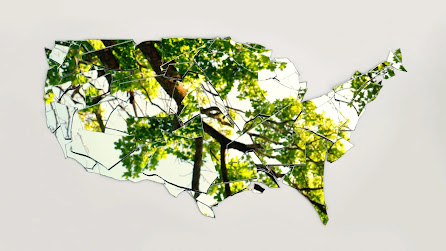David Brooks, who writes, most usually, for The New York Times, is a not a pundit who limits his pontifications to one venue alone. Recently, Brooks has written a long essay for The Atlantic, "HOW AMERICA GOT MEAN."
You pretty much need to subscribe to The Atlantic to read its articles, I think, though non-subscribers are certainly invited to click the link that I have provided, and to test out how stringently The Atlantic is committed to maintaining a robust system of paywall protection. Presuming that The Atlantic is definitely feeling that a robust defense against non-subscriber intellectual interlopers is important, let me quickly summarize what Brooks has to say in "HOW AMERICA GOT MEAN."
First, Brooks indicates that he is "obsessed" with the question of how Americans have become so "mean." Brooks is also "obsessed," he confesses, with another question, "how Americans became so sad."
With respect to the "mean" thing, Brooks cites to various indicator statistics, including murder rates, the level of charitable giving within the overall population, and hate crimes. He is pretty clear, looking at the numbers, that there really is something happening on the "we're getting mean" front. "We’re enmeshed in some sort of emotional, relational, and spiritual crisis," Brooks says, "and it undergirds our political dysfunction and the general crisis of our democracy."
Brooks offers a number of alternative theories as possible explanations:
The technology story: Social media is driving us all crazy.
The sociology story: We’ve stopped participating in community organizations and are more isolated.
The demography story: America, long a white-dominated nation, is becoming a much more diverse country, a change that has millions of white Americans in a panic.
The economy story: High levels of economic inequality and insecurity have left people afraid, alienated, and pessimistic.
While Brooks thinks all these "stories" are worth pondering, and have some relevance, Brooks doesn't really believe that any one of them actually (or at least fully) explains what's going on:
The most important story about why Americans have become sad and alienated and rude [Brooks says] is also the simplest: We inhabit a society in which people are no longer trained in how to treat others with kindness and consideration. Our society has become one in which people feel licensed to give their selfishness free rein. The story I’m going to tell is about morals. In a healthy society, a web of institutions—families, schools, religious groups, community organizations, and workplaces—helps form people into kind and responsible citizens, the sort of people who show up for one another. We live in a society that’s terrible at moral formation (emphasis added).
What we need, in sum, is better "moral training." That's what Brooks is telling us.
As anyone who has read my daily blog postings with any regularity knows, I am not really convinced that spending a lot of time acting as an "observer" of life is the best way to utilize one's time. I am more interested in what to do. "Acting," in other words, not "observing," is what I think should be our major focus.
In order to be effective as "actors," of course, we do need to have a sense of where we are, and what's going on. Paying attention to sociology, technology, economics, and our political situation is clearly important. As a public intellectual and pundit, Brooks provides us with important assistance as he puzzles through important questions, including the question of why Americans have become so "mean."
Personally, though, I tend to think that there is a problem when we start "seeing" the world as if the discrete encounters and experiences we have are best understood by deploying a "theory" that might appropriately explain them. To use Brooks' article as an example of what I am talking about, if we are operating on the basis that Americans have become "mean," we can start interpreting most of our encounters with others in the framework of "mean" / "not mean," which I think can have the effect of radically diminishing our willingness simply to meet others where they are, and deal with them there.
While my experience is admittedly based on a very small sample, my own encounter with a bonafide "troll," previously reported here, seems to illusrate the disadvantage of going out into our world with a preformed idea that we are likely going to encounter lots of "mean" people. I have, very recently, had an online encounter with someone who wrote me, "out of the blue," from my perspective, to call me "ridiculous," and to tell me that he "heckled" me during a speech I apparently gave in San Lorenzo Park, in Santa Cruz. I don't remember any such incident, which must have occurred many years ago, but I replied to the person who emailed me, and our correspondence ended up with him thanking me for my years of public service.
Let's try to avoid the "mean" / "not mean" construct as we encounter the other persons with whom we share the world. I continue to think that "talking to strangers" is an activity to be encouraged. Small groups, working on issues of mutual importance - "doing politics," I am tempted to call it - are also likely to be productive, and to end up connecting us, as individuals, with other persons who turn out to be the opposite of "mean."
Smiling at everyone helps, too.
If you have never thought about that "smile" idea, try it. I bet you'll like it!


No comments:
Post a Comment
Thanks for your comment!